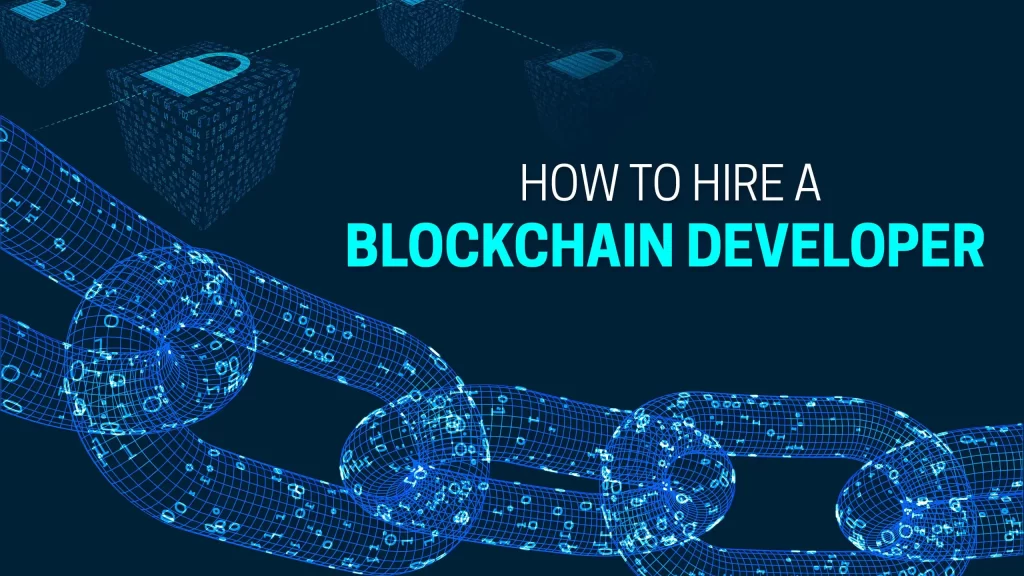
In the rapidly evolving landscape of technology, blockchain has emerged as a groundbreaking innovation with the potential to revolutionize various industries. As businesses increasingly recognize the value of blockchain technology, the demand for skilled blockchain developers is on the rise. However, hiring the right talent for your blockchain projects can be a challenging task. In this article, we will explore the key factors to consider and steps to follow when hiring a blockchain developer.
Understanding the Role of a Blockchain Developer
Before delving into the hiring process, it is essential to have a clear understanding of the role a blockchain developer plays in a project. A blockchain developer is responsible for designing, implementing, and maintaining decentralized applications (DApps) and smart contracts. They should possess expertise in blockchain technologies, cryptography, and programming languages such as Solidity for Ethereum or Go for Hyperledger Fabric.
Key Considerations for Hiring a Blockchain Developer
1. Define Your Project Requirements:
Clearly define the scope and requirements of your blockchain project. Understand whether you need a developer with expertise in public blockchains like Ethereum or private/enterprise blockchains such as Hyperledger. Additionally, specify whether the developer should have experience in developing smart contracts, decentralized applications, or both.
2. Evaluate Technical Skills:
Assess the technical skills of the candidates thoroughly. A competent blockchain developer should have a strong understanding of blockchain principles, consensus algorithms, and cryptographic techniques. Proficiency in programming languages relevant to blockchain development, such as Solidity, Go, or Java, is crucial.
3. Experience in Blockchain Platforms:
Different blockchain platforms have distinct features and requirements. Ensure that the developer has hands-on experience with the specific blockchain platform you plan to use. For example, if your project is built on Ethereum, look for candidates with prior experience in developing on the Ethereum blockchain.
4. Smart Contract Development Expertise:
If your project involves smart contracts, assess the candidate’s expertise in smart contract development. They should have experience writing secure and efficient smart contracts, understanding the nuances of blockchain security, and mitigating potential vulnerabilities.
5. Knowledge of Decentralized Applications (DApps):
Blockchain developers often work on the development of decentralized applications. Evaluate the candidate’s experience in building user-friendly DApps, considering factors such as user interface (UI) design, user experience (UX), and integration with blockchain protocols.
6. Understanding of Consensus Mechanisms:
Blockchain relies on consensus mechanisms to validate and add transactions to the ledger. Ensure that the developer is familiar with various consensus algorithms, such as Proof of Work (PoW) and Proof of Stake (PoS), and understands their implications on scalability, security, and decentralization.
7. Security Awareness:
Security is a critical aspect of blockchain development. Assess the candidate’s awareness of security best practices in blockchain, including measures to prevent common vulnerabilities like reentrancy attacks, overflow vulnerabilities, and denial-of-service attacks.
8. Communication and Collaboration Skills:
Effective communication and collaboration are essential for the success of any development project. Evaluate the candidate’s ability to communicate complex technical concepts to non-technical stakeholders and assess their teamwork and collaboration skills.
Steps in the Hiring Process
1. Craft a Detailed Job Description:
Start by creating a comprehensive job description that outlines the specific skills, experience, and qualifications you are looking for in a blockchain developer. Clearly define the roles and responsibilities, as well as any specific project requirements.
2. Use Specialized Job Platforms:
Leverage specialized job platforms and communities focused on blockchain development to reach a pool of experienced candidates. Platforms like LinkedIn, AngelList, and specialized blockchain job boards can be effective in finding qualified talent.
3. Screen Resumes and Portfolios:
Review resumes and portfolios of potential candidates to shortlist those who meet the criteria outlined in the job description. Look for relevant experience, completed projects, and a strong track record in blockchain development.
4. Technical Assessment:
Conduct a technical assessment to evaluate the candidate’s proficiency in blockchain development. This could include coding challenges, problem-solving exercises, or a review of their previous projects. Consider using platforms like HackerRank or CodeSignal for technical assessments.
5. Interview Process:
Design a thorough interview process that includes both technical and non-technical aspects. Technical interviews should assess the candidate’s knowledge of blockchain principles, programming skills, and problem-solving abilities. Non-technical interviews can focus on communication skills, collaboration, and cultural fit within the organization.
6. Evaluate Soft Skills:
Beyond technical expertise, assess the candidate’s soft skills. Effective communication, adaptability, and a collaborative mindset are crucial for seamless integration into a development team.
7. Check References:
Contact the candidate’s previous employers or colleagues to gather insights into their work ethic, reliability, and ability to contribute to a team. This step can provide valuable information that may not be evident from the interview process alone.
8. Consider Cultural Fit:
Evaluate the candidate’s alignment with your organization’s culture and values. A developer who shares the same principles and goals as your company is more likely to thrive and contribute positively to the team.
Conclusion
Hiring a skilled blockchain developer is a crucial step in ensuring the success of your blockchain projects. By defining your project requirements, assessing technical skills, and following a comprehensive hiring process, you can identify candidates who possess the expertise and capabilities needed for your specific needs. Remember that the blockchain landscape is dynamic, so prioritize candidates who demonstrate a willingness to adapt, learn, and stay updated on the latest developments in this rapidly evolving field.
